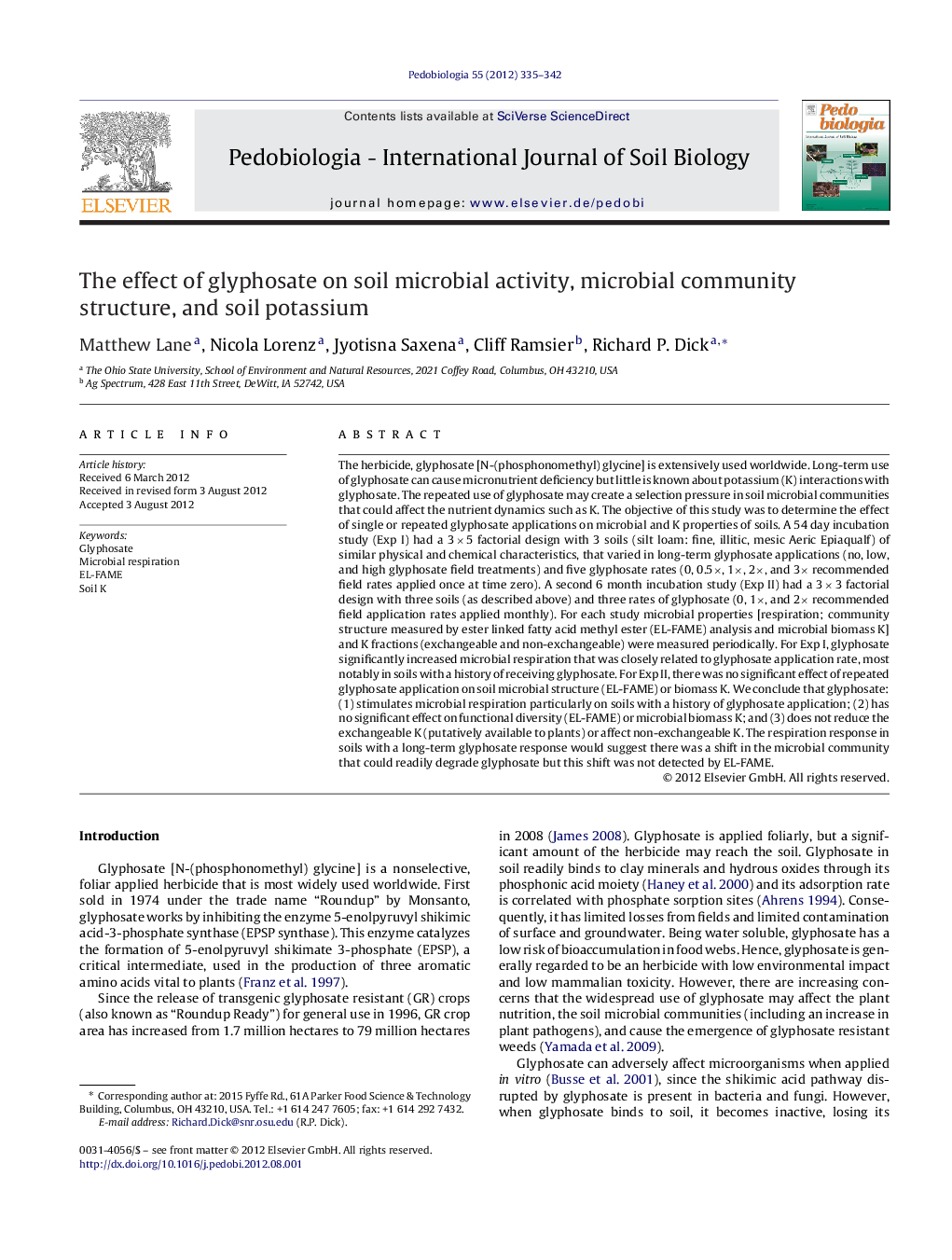| Article ID | Journal | Published Year | Pages | File Type |
|---|---|---|---|---|
| 2061454 | Pedobiologia | 2012 | 8 Pages |
The herbicide, glyphosate [N-(phosphonomethyl) glycine] is extensively used worldwide. Long-term use of glyphosate can cause micronutrient deficiency but little is known about potassium (K) interactions with glyphosate. The repeated use of glyphosate may create a selection pressure in soil microbial communities that could affect the nutrient dynamics such as K. The objective of this study was to determine the effect of single or repeated glyphosate applications on microbial and K properties of soils. A 54 day incubation study (Exp I) had a 3 × 5 factorial design with 3 soils (silt loam: fine, illitic, mesic Aeric Epiaqualf) of similar physical and chemical characteristics, that varied in long-term glyphosate applications (no, low, and high glyphosate field treatments) and five glyphosate rates (0, 0.5×, 1×, 2×, and 3× recommended field rates applied once at time zero). A second 6 month incubation study (Exp II) had a 3 × 3 factorial design with three soils (as described above) and three rates of glyphosate (0, 1×, and 2× recommended field application rates applied monthly). For each study microbial properties [respiration; community structure measured by ester linked fatty acid methyl ester (EL-FAME) analysis and microbial biomass K] and K fractions (exchangeable and non-exchangeable) were measured periodically. For Exp I, glyphosate significantly increased microbial respiration that was closely related to glyphosate application rate, most notably in soils with a history of receiving glyphosate. For Exp II, there was no significant effect of repeated glyphosate application on soil microbial structure (EL-FAME) or biomass K. We conclude that glyphosate: (1) stimulates microbial respiration particularly on soils with a history of glyphosate application; (2) has no significant effect on functional diversity (EL-FAME) or microbial biomass K; and (3) does not reduce the exchangeable K (putatively available to plants) or affect non-exchangeable K. The respiration response in soils with a long-term glyphosate response would suggest there was a shift in the microbial community that could readily degrade glyphosate but this shift was not detected by EL-FAME.
